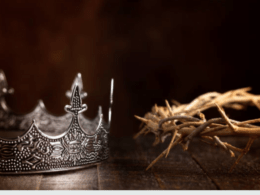What else could be more important than money? What in life should a man genuinely hold in high esteem besides love for money? This is one of the obvious questions that comes to mind in the narrative Song of Solomon by Toni Morrison. The narrative is about the insatiable quest of a young man called Milkman, about thirty-two years old, who embarked on a compulsive search for gold, which, according to him, he believes everybody needs, but not as much as him. Unfortunately, his father, Macon Dead, first established this unguarded passion for gold in his consciousness.
Macon Dead was under the spell of excessive accumulation and a strong appetite for materialism that negatively impaired his familial relationship with his wife, Ruth, and his sister, Pilate. Macon has accused Pilate of greed regarding illegally possessing their father’s gold, which he believes they should share. He supposes that it was the gold of their father that Pilate hung in a sack somewhere in her home, which has drawn a lot of resentment from Macon for her supposedly selfish attitude. Due to his displeasure towards his sister, he carelessly presented the idea of stealing the hung gold in Pilate’s house to Milkman, his son. However, the plan to execute the stealing of the gold backfired, leading to the arrest of Milkman and his friend Guitar, who was also caught in the web of greed! When Pilate eventually came to take their bail, they knew that the content of the sack they had been skimming for did not contain gold but the bones of the father of Pilate and Macon.
One would have expected Milkman to have learned some lessons after his travail at the hands of the police; however, this was just the beginning of his unquenchable passion for gold! In his own words, he exclaimed,
“I just know that I want to live my own life. I don’t want to be my old man’s office boy no more. And as long as I’m in this place, I will be, unless I have my own money. My family’s driving me crazy, daddy wants me to be like him and hate my mother. My mother wants me to think like her and hate my father. Corinthians won’t speak to me; Lena wants me out. Hagar wants me chained to her bed or dead. Everybody wants something from me, you know what I mean? Something they think they can’t get anywhere else. Something they think I got. I don’t know what it is – I mean, what it is they really want.”
Therefore, in light of the above-stated scenario, as verbalized by Milkman, I consider the ethical tension of this narrative to be a continual struggle between greed for gold versus the need for a healthy familial relationship. This ethical tension was always in conflict with each other in Milkman’s and his father’s lives. Until Milkman was able to reassess his most authentic value in life and, in the process, regained a new perspective and subsequently resolved to live with compassion for the people dearest to him, he was never a satisfied man.
Humans today are consistently challenged by the need to order their priorities rightly and to carefully choose their values in this modern and highly materialistic world. The narrative about Milkman is clearly illustrated in the story of the ancient Greek mythology of King Midas, who lived in Phrygia in the eighth century BC. According to the legend, Midas was a king of stupendous wealth and affluence who always craved more gold no matter how much he collected in his vault. His story was a myth about the tragedy of an indefinite quest for gold as a trustworthy source of happiness. Midas had wished that everything he touched would turn into gold. But, he failed to realize that this wish was not a blessing but a curse. His appetite for gold has unwittingly and strangely turned his only daughter into a statue of gold! Midas’ greed is, therefore, an invitation for us to think and realize the consequences that may lead us to become slaves of our own desires. After this sad tale, King Midas gladly gave up his golden touch and rejoiced in restoring the simple things of life- family, food, and natural beauty. He realized that these things have more excellent value in life than the gold he has spent his entire life gathering.
Milkman initially had an inverted worldview like his father does. Materialism, solo life, and lack of familial compassion, particularly for Hagar, whom he had neglected for lack of affection, which had led to her premature death. Like Midas, whose golden touch became a curse to him regarding his daughter. Midas, only daughter, has strangely turned into a statue of gold! The cord of familial tie has been slaughtered on the altar of an insatiable craving for gold. Also, Milkman’s quest for gold has negatively impacted his familial devotion and relevance. He had always wondered what those closest to him actually wanted from him. Good family memories don’t make any sense to him again. He had placed gold above family, so even when he made a journey to his ancestral home, despite originating from the community, he suddenly realized that the people didn’t care about his display of affluence. He had assumed that the key to his freedom was connecting to his hometown, which was not entirely wrong, except that the assumption would not be valid on the grounds of his search for gold.
The Shalimar community is more inclined to communal living and mystical values other than the Western individualism, self-style made man, and materialism that he was displaying, which drew resentment rather than respect. When he bought into their ideology of life, it helped him recapture lost confidence and regain his perspective. His self-awareness from the experience of his search for gold has taught him invaluable lessons that have had a great impression on him.
Initially, when Milkman arrived in the South, he was very oppressive; his expensive suit, shining shoes, beautiful golden wristwatch, and car were all intended to make a specific statement about his affluence. However, the more he tried to impress the people, the farther he was from them. Very soon, things quickly went off course because people resented him. These material possessions that once made him feel very important were destroyed as he continued looking for gold. When the chase for gold became meaningless to him with some hard-core lessons arising from injuries sustained along the line, he shifted significantly in his paradigm. He gave up his search for gold and started a new pursuit of the adventure of learning about the story of his people. The people he met in Shalimar have dealt with him in a manner that has made him unshroud his pretense before they could help him. His willingness to put a stop to his oppressive display of wealth and humility to relate with their women casually is what made them extend the freedom of xenia to him. He has learned a bitter lesson in the woods, where he was stripped of everything depicting Westernization. This enabled him to appreciate human friendship as one golden factor every man cannot do without.
Before acknowledging this fresh perspective, Milkman was so desperate about his quest for gold that he contemplated killing anyone who stood in his way, even if it were Pilate. He decided he would hit Pilate if she came into the room while he stole, regardless of what she might have done in the past, like cooking the first perfect egg for him or telling him stories about the beautiful blue sky. She may even have sung him songs, fed him banana, cornbread, and hot nut soup on the first cold day of the year, and taken the role of a mother would have in his life. All these things would count for nothing if she stood in his way.
I think Milkman’s sadistic attitude is the tragic outcome of unchecked values in life. This essay began with the question, what else could be more important than money? I wish to argue that this is a very pertinent question in life. This article has consistently demonstrated that it is one question that Milkman was obviously in conflict with as he embarked on his search for identity. His orientation was that freedom is strongly connected to material accumulation, as his father had erroneously taught him. Macon’s father firmly believed that money and property are the keys to what is real in the world, but unknowingly for Macon, his financial prosperity has negatively impacted his capacity to communicate freely and show emotion to his immediate family members. His advice to his son was, “Come to my office; work a couple of hours there and learn what’s real. Let me tell you right now that one important thing you’ll ever need to know: Own things. And let the things you own own other things. Then you’ll own yourself and other people, too.”
When Milkman bought into this mindset, life became an instant jolly ride. He had bullishly dragged him into the world of self-centeredness that was being continuously fed by greed and estranged feelings for familial xenia.
But when he had the actual knowledge about himself and of the story of his grandparents, particularly about Macon Dead Snr. who was unjustly murdered based on his possession and the color of his skin because, in those days, being black meant being nobody. Having inquired into issues surrounding his grandfather’s death, he persuaded his father and Pilate to come along with him to give their father a befitting burial by proudly showing the gut to bury his bones properly. This act will demonstrate Milkman and Macon’s renewed commitment to the family. The bone had been with Pilate for many years, and he ignorantly planned to steal the bones, thinking they were gold. Pilate decided to keep these bones when she was in a dream, and her father instructed her to take responsibility for his bones.
You just can’t fly on off and leave a body, he told me. A human life is precious. You shouldn’t fly off and leave it. He meant that if you take a life, then you own it. So, I knew right away what he meant because he was right there when we did it. He meant that if you take a life, then you are responsible for it. You can’t get rid of nobody by killing them.
This is generally the longing of the dead, particularly in ancient Greek society. In the Greek play “Antigone” in Sophocles, Antigone was bent on burying her brother Polynices by all means, even if the act was against the state’s law. This is the only way for Antigone to show her devotion to her family. Still looking at the conflict that ethical tension is generating in modern society, the effect of the tension is particularly more pronounced in matters relating to money, fame, and malnourished familial relationships. The story of Milkman may have been situated in a generation that is way outside the scope of our present age. Still, it won’t be entirely out of place to say that the narrative also reflects this modern generation.
A few years ago, a popular Televangelist, Benny Hinn, and his wife, Suzanne, filed for divorce amidst varying degrees of rumor and general confusion within the body of Christ. According to the story, Suzanne felt neglected and isolated while Pastor Benny Hinn was having great strides and successive success in ministry to the detriment of his home. The strain in the relationship, which had been building up for many years, eventually gave way in 2010. Pastor Benny Hinn did admit that he was married to the ministry instead of to his wife, which, in his words, was killing their marriage. The alienation was so much for Suzanne that she had to be placed on drugs, which she became dependent on for nearly 15 years without Benny Hinn knowing because of his extreme focus on the successes in ministry. The familial xenia has been seriously impaired, which made their family endure the traumatic experience of three years of divorce. The marriage breakdown made Benny Hinn gain a new perspective on the role of family in the larger context of a minister’s first constituency in life. The marriage was restored in 2013 when the two couples had to renew their wedding vows publicly.
The theological implication of the ethical tension of those who crave success in life and ministry above devotion to the family always ends up very tragically unless they repent, as Milkman and Pastor Benny Hinn did.
A biblical character that comes to mind is Eli. Eli was a mighty priest in Israel whose prophetic affirmation to the prayer of Hannah produced the prophet and the judge in Israel – Samuel. But Eli chose to place ministry success above a healthy family life. The children of Eli were regarded as scoundrels because they had no regard for God or the duties of the priests to the people. They often stand in the way of those coming to offer sacrifice to God in Shiloh. Sometimes, Eli’s children forcefully molested women sexually who had a genuine intention to worship God (1 Sam. 2: 12-17,22) due to the lack of devotion to his family arising from a shallow upbringing factored by an extreme focus on ministry successes. The entire generation of Eli was utterly wiped out in one day! God accused Eli and his children of possessing a greedy eye at his sacrifices and offerings, which made the judgment of God come on them because they were unrepentant (1 Sam. 2: 27-34).
Another biblical example of the theological implication of the ethical tension is the ineffectiveness of Samuel to nurture his children in the proper way of the lord. Samuel was Eli’s protégé and perhaps didn’t learn anything positive about exemplary family devotion from Eli. He had a flawed model in Eli in matters relating to family life, so his children, like Eli’s children, were sons of Belial. When Samuel was advancing in age, he had assumed that without working hard on family devotion, his children would one day change. He subsequently appointed them as judges in Israel, but they soon turned greedy, too, pursuing monetary gain, taking bribes, and perverting justices. This made the elders of Israel challenge Samuel to ask God to give Israel a king like every other nation (1 Sam.8:1-6). From that moment, we heard nothing much about the children of Samuel. I guess they just naturally fizzle out into oblivion. Sadly, Eli’s and Samuel’s families paid the ultimate price of greediness!
King David was another man who favored conquest, wealth, and royalty above familial devotion and comportment. Some terrible things happened within the family of David. Because of his affluence and wealth, the King forcefully acquired Bethseba, Uriah’s wife, and orchestrated the man’s death. Two of his children committed incest, and Absalom and Adonijah, two of his sons, were bent on overthrowing him as King while he was still alive. But, after some reflective moments in the wilderness of life as it was with Milkman. David confessed his sins before God and asked for his sins to be blotted out while he prayed for God’s mercy for a renewed perspective to be gained about life (Psalms 5:9-13). One of the results of David’s repentance is the special privilege accorded to David by God, granting his family lineage the honor of bringing forth Jesus as the world’s savior (Matt. 1: 1-16).
I implore every reader of this article to reconsider their values and what is truly important to them. This is the first step towards living a peaceful and flourishing life. What could be more important than wealth, affluence, and fame? Think about it for a moment and take time to think deeply about what you think your answer would be. A modest life is frowned upon in society today when it is what we should all care chiefly about.
If you are passionate about writing and understand the power to shape culture through writing, please contact us immediately, and our representatives will walk you through how you can join our team of writers at the Africana Leadership Digest.













Hello there, I found your website by the use of Google whilst searching for a comparable subject, your site got here up, it appears great.
I’ve bookmarked it in my google bookmarks.
Hello there, just became aware of your blog through Google, and found that it is truly informative.
I’m gonna watch out for brussels. I’ll appreciate for
those who continue this in future. Many folks will probably be benefited out of your writing.
Cheers!
Thank you for your time, trust you got value for it from the articles